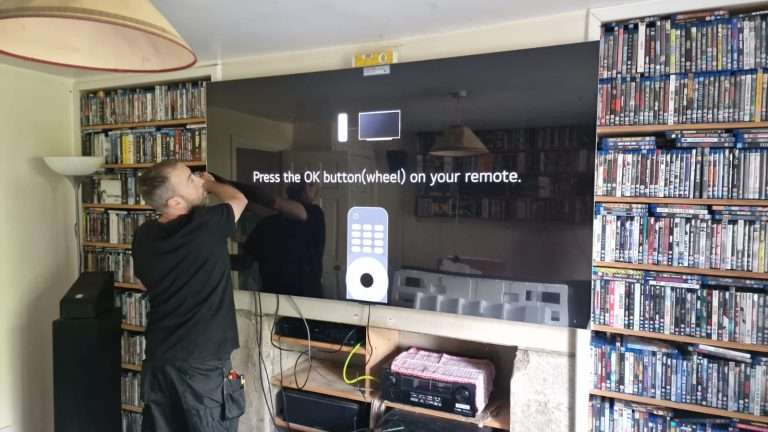Expert Tips for Installing a CCTV Camera System
In today’s world, ensuring the security of your home or business has become a top priority. With advancements in technology, installing a CCTV camera system has never been easier or more effective. However, to ensure your system provides optimal protection, there are several important considerations to keep in mind. Whether you’re a DIY enthusiast or hiring a CCTV camera installation company, following expert tips can ensure the best results.
Additionally, integrating wireless broadband solutions can offer more flexibility and convenience in your setup. Let’s explore some essential tips for installing a CCTV camera system that meets your needs.
Tips for Installing a CCTV Camera System
1. Plan the Layout of Your CCTV System
Before you purchase or install any equipment, it’s important to carefully plan the layout of your CCTV system. Start by identifying the key areas you want to monitor. Consider entry points such as doors, windows, and driveways, as well as high-traffic areas inside your home or business. Additionally, think about blind spots that could offer potential entry points for intruders.
Make a rough sketch of your property and mark where you plan to place each camera. By carefully planning the positioning, you can ensure complete coverage without leaving vulnerable areas unmonitored. For professional help, you can consult a Pennine Plus CCTV camera installation company to guide you through the process.
2. Choose the Right Type of CCTV Cameras
There are various types of CCTV cameras available on the market, and selecting the right type for your needs is essential. Some of the most popular types include:
- Dome Cameras: Ideal for indoor use, these cameras offer a wide field of view and are often used in retail stores and offices.
- Bullet Cameras: These are great for outdoor use, as they are weather-resistant and offer high-quality images over long distances.
- PTZ (Pan-Tilt-Zoom) Cameras: These cameras provide a wide range of coverage and can be remotely controlled to move and zoom, making them ideal for large areas.
If you’re unsure which camera type is best for your needs, a CCTV camera installation company can provide recommendations based on your specific requirements.
3. Consider the Use of Wireless CCTV Cameras
In recent years, wireless broadband solutions have become increasingly popular for CCTV installations. Wireless cameras eliminate the need for extensive wiring, making installation easier and more flexible. With wireless systems, you can place cameras in areas where running cables might be difficult, such as in outdoor spaces or large properties.
One of the key benefits of wireless systems is that they are easy to expand. If you decide to add more cameras in the future, you won’t need to worry about laying additional cables. However, it’s essential to ensure that your wireless network is strong and secure to prevent unauthorised access. Make sure your system supports encryption protocols like WPA3 for added security.
4. Ensure Proper Lighting for Your Cameras
Cameras need adequate lighting to capture clear images, especially at night. When installing outdoor cameras, ensure they are placed near external lights, such as motion-activated lights. These lights not only enhance the clarity of the footage but also act as a deterrent for potential intruders.
For indoor cameras, you may need to adjust lighting or use infrared cameras, which can capture images in low-light conditions. A CCTV camera installation company like Pennine Plus can help you select cameras with night vision capabilities if needed.
5. Position Your Cameras at the Right Height
One common mistake many people make during CCTV installation is placing the cameras too high or too low. For optimal coverage, install your cameras at a height that allows them to capture faces clearly while also covering a wide area. Generally, outdoor cameras should be mounted at a height of 8 to 10 feet, and indoor cameras should be placed slightly higher than eye level.
Placing cameras too high might make it difficult to capture useful details, while placing them too low could make them easy targets for tampering.
6. Secure Your Recording Equipment
It’s important to remember that your CCTV system doesn’t just consist of cameras; it also includes recording equipment such as a DVR (Digital Video Recorder) or NVR (Network Video Recorder). This equipment should be placed in a secure location to prevent tampering or theft. Ideally, the recording device should be hidden in a locked room or cabinet, and access should be limited to authorised individuals.
For wireless systems, you should ensure that your recordings are saved on a secure server or cloud-based storage platform. This not only prevents physical damage to the recordings but also makes it easier to access footage remotely.
7. Regular Maintenance is Key
After installation, it’s important to regularly check your CCTV cameras to ensure they are functioning properly. Dust, dirt, and debris can accumulate on the lenses, reducing image quality. Wipe the lenses with a soft cloth regularly, and check that all connections and power sources are secure.
For wireless systems, ensure that your network is stable and that firmware updates are applied to both the cameras and the router. A CCTV camera installation company can offer periodic maintenance services to keep your system in top condition.
8. Integrate Mobile and Remote Access
One of the biggest advantages of modern CCTV systems is the ability to access footage remotely from your smartphone or computer. By integrating wireless broadband solutions, you can monitor your property in real-time, even when you’re away. Many systems come with mobile apps that allow you to receive alerts and view live footage from your cameras.
Make sure to enable remote access during the installation process and secure it with strong passwords to prevent unauthorised access.
Conclusion
Installing a CCTV camera system is one of the most effective ways to enhance the security of your home or business. By carefully planning your setup, choosing the right equipment, and integrating wireless broadband solutions, you can ensure that your system provides reliable and comprehensive protection. Whether you choose to install the system yourself or hire a CCTV camera installation company like us, following these expert tips will help you get the most out of your CCTV system.





